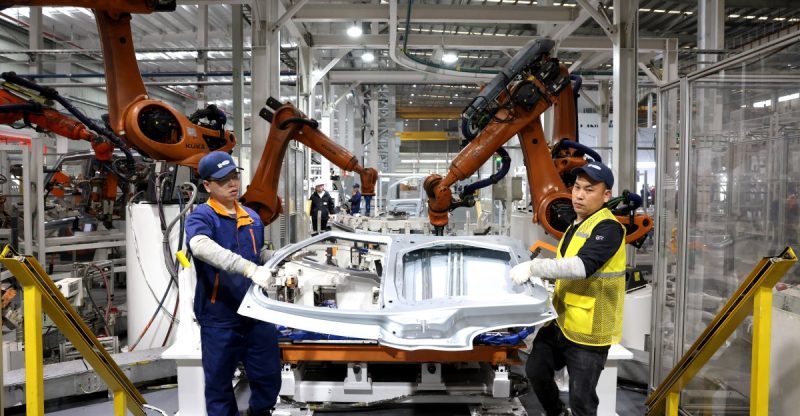
It’s a strange week in international relations. China’s foreign ministry spokespeople are having an unusually easy time. Why? Because President Trump’s escalating trade war is inadvertently handing Beijing a golden opportunity. Trump’s latest round of tariffs – a staggering 104 percent on some Chinese goods – is painting the US as the disruptor of the global economic order, a narrative China is eagerly embracing.
China’s official response has been a measured blend of condemnation and quiet confidence. They’ve accused the US of violating WTO rules and undermining global stability, all while simultaneously pledging to further open their markets. This seemingly contradictory stance is a calculated move, positioning China as the defender of multilateralism against American unilateralism. This is a stark contrast to the US’s portrayal of China in recent years as a destabilizing force.
The irony isn’t lost on observers. Where once China was cast as the challenger to the US-led world order, now it’s the US, under Trump’s leadership, that appears to be the destabilizing force. Analysts like Martin Wolf of the Financial Times even describe the US as a “reactionary power,” while China is presented as the status quo defender. This shift in perception is providing China with significant diplomatic leverage.
Trump’s tariff strategy appears haphazard, lacking any clear political or strategic vision. Countries across the globe, from US allies like Japan and Vietnam to Latin American nations with varying political leanings, have been indiscriminately hit with steep tariffs. This indiscriminate approach has created widespread resentment and provided China with a perfect opening to strengthen its relationships with these aggrieved nations.
China is already the largest trading partner for many countries in sub-Saharan Africa and Latin America. Initiatives like the Belt and Road Initiative are further cementing its influence in the Global South. Trump’s tariffs could accelerate this trend, offering China increased investment opportunities and expanding markets for its goods. The timing couldn’t be better for China, who was already working to deepen its ties across the globe.
However, China’s ability to fully capitalize on this opportunity isn’t guaranteed. Tensions remain in the South China Sea, and the EU, while potentially looking for alternatives to the US, will likely resist an unchecked flood of Chinese goods into European markets. Tensions between the EU and China over issues like intellectual property and economic coercion will also continue to complicate any potential closer relationship.
The ultimate outcome of Trump’s tariffs remains unclear. While some nations may negotiate for tariff relief, the unpredictability of the Trump administration makes such deals risky. China, despite facing economic headwinds, appears confident in its ability to withstand the impact. The current situation could even strengthen Xi Jinping’s domestic position by providing a convenient external enemy.
Ultimately, the question remains: is Trump’s approach a strategic reset of the global economic order, or is it simply a reckless abandonment of America’s leadership role, leaving a vacuum for China to fill? The answer, at this stage, remains elusive, but China appears more than ready to seize the opportunity presented.










